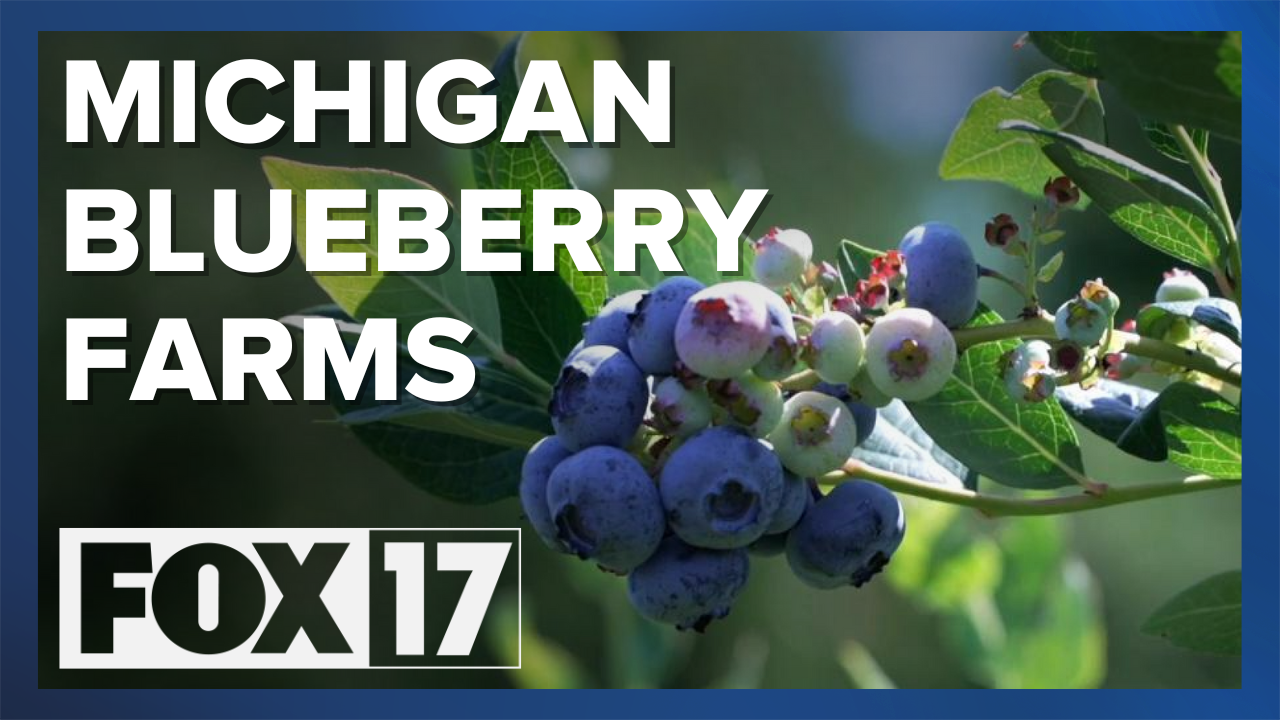OLIVE TOWNSHIP, Mich. — Standing in a sunny blueberry field, Chad Reenders picks and eats a single, plump berry. It's very good, he says, and the field has been "very fortunate" to receive the right amount of rain this season as other area farms have been poured upon by severe storms.
"To get the perfect blueberry, you really need to know what you're doing," Reenders said. "You can't come in and assume you can grow the best."
While summer rains and a warm winter and spring have not seemed to hurt the sprawling, Ottawa County farms that Reenders harvests "from sunup to sundown," the state's blueberry industry is still climbing back from a bit of a bust.
"We're starting to build Michigan back up again," said Reenders, who is president of the Michigan Blueberry Advisory Committee (MBBAC). "The world is always changing; policies are always changing. But the farms need to stay right here."

In 2023, recent data from the USDA says Michigan produced 87.5 million pounds of blueberries, a 20 percent increase from the previous year. Still, the state has not recorded a 100 million-plus pound crop since 2016, partly due to the effect of imports, Reenders says.
Foreign shipments — rising from 44 million pounds in 2000–2002 to 450 million pounds in 2018–2020 — drove down prices and demand, prompting a number of local farmers to sell their land and take advantage of high property values.
"We can't make sales if our products are not selling. We can't sell to our retailers if those aren't coming off the shelves," Reenders said.

READ MORE: Blueberry eating world record set in Grand Rapids by Patrick Bertoletti
Reenders also owns Blue Mitten Winery in Grand Haven. He wants his blueberry fields to stay in the family: "Here for my children and their children."
"We're starting to make better-quality fruit, better varieties, bigger berries. Bluer berries, if that's even possible," Reenders told FOX 17.

As president of the Michigan Blueberry Advisory Committee, he speaks on behalf of farmers like him in the state's and nation's capitals.
READ MORE: Sen. Peters, blueberry farm battle invasive fly species
In addition to working with the USDA and EPA on insurance policies and insecticide, Reenders would like to see minimum wage for migrant workers increase at a "manageable" rate.
As for picking through the produce aisle, he gives a reading assignment: "Make sure you look at the containers of fresh fruit you're buying," he said. "Make sure they say 'Michigan blueberries.'"






